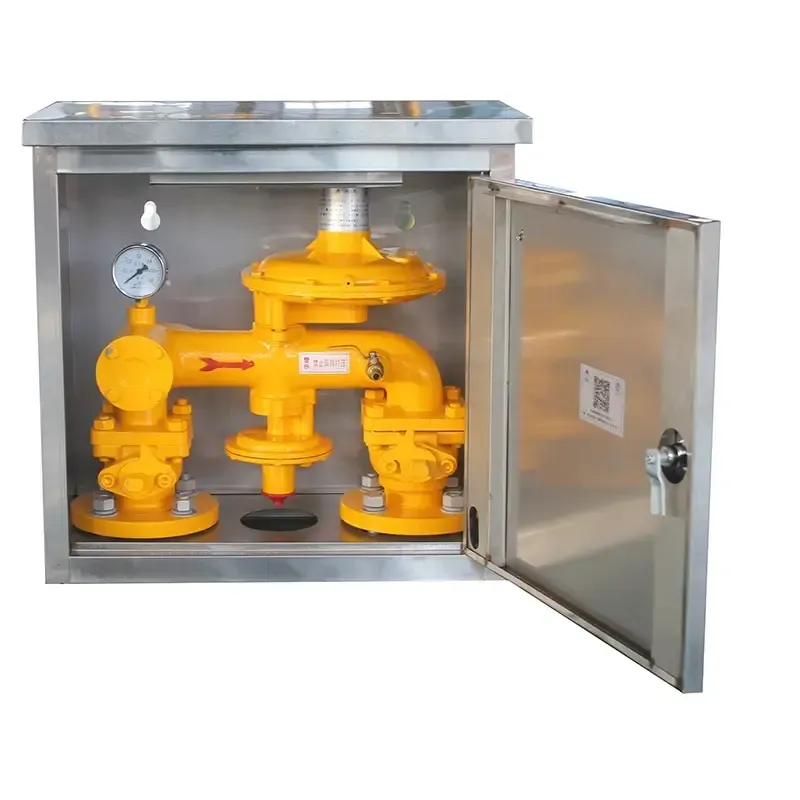
Dec . 04, 2024 09:38
Back to list
gas metering
Understanding Gas Metering A Comprehensive Overview
Gas metering is a critical component in the energy industry, primarily serving to measure the consumption of natural gas in residential, commercial, and industrial applications. As global energy demands continue to rise, efficient gas metering systems have become essential for accurate billing, monitoring, and management of gas supply and consumption.
What is Gas Metering?
Gas metering refers to the process of measuring the quantity of gas used by a consumer. This measurement is typically done using gas meters, devices specifically designed to record gas flow in terms of volume or flow rate. Depending on the application, gas meters can vary in complexity and technology, ranging from simple mechanical devices to advanced electronic and smart metering systems.
Types of Gas Meters
1. Diaphragm Meters Commonly used in residential applications, diaphragm meters measure gas flow based on the movement of flexible diaphragms. As gas flows through the meter, it causes a diaphragm to flex, which in turn moves a series of gears that translate the flow into a readable measurement.
2. Rotary Meters These are typically employed in commercial and industrial settings. Rotary meters utilize rotating vanes to measure the volume of gas passing through the meter. They are known for their accuracy at high flow rates and are less sensitive to changes in temperature and pressure.
3. Turbine Meters Turbine meters operate by using a rotor placed in the gas stream. As gas flows through the meter, it causes the rotor to spin, with the rotational speed being directly proportional to the gas flow rate. This type of meter is also suited for industrial applications, where high accuracy is required.
4. Ultrasonic Meters An advanced type of gas metering technology, ultrasonic meters use sound waves to measure the gas flow. By calculating the time it takes for ultrasonic pulses to travel upstream and downstream, these meters provide highly accurate readings and can compensate for variations in temperature and pressure.
5. Smart Meters With the advent of digital technology, smart meters have emerged as a revolutionary tool in gas metering. These devices not only measure gas consumption accurately but also transmit data in real-time to both consumers and utility providers through wireless communication. Smart meters facilitate remote monitoring, which enhances billing accuracy, reduces operational costs, and allows for prompt response to leaks and other issues.
Importance of Gas Metering
gas metering

The significance of gas metering extends beyond simple measurement. Accurate gas metering is vital for various reasons
- Billing Accuracy Precise measurement ensures consumers are billed correctly for their gas usage. This reduces disputes between consumers and gas providers, leading to improved customer satisfaction.
- Leak Detection Advanced metering systems can detect inconsistencies in gas flow, potentially indicating leaks. Early leak detection is crucial for safety and can prevent costly damages and environmental hazards.
- Energy Management Data collected from gas meters can be analyzed to identify consumption patterns, enabling consumers and businesses to optimize their gas usage and improve energy efficiency.
- Regulatory Compliance Gas metering is essential for monitoring compliance with regulatory standards set by government agencies. Accurate record-keeping supports environmental and safety regulations.
The Future of Gas Metering
As technology continues to evolve, the future of gas metering looks promising. Integrating Internet of Things (IoT) technology has the potential to enhance the capabilities of gas meters, providing real-time analytics and enabling predictive maintenance. This can significantly improve the operational efficiency of gas distribution systems.
Moreover, as the global focus shifts towards sustainability and reduced carbon footprints, the role of gas metering will become increasingly important in managing and optimizing natural gas usage as a transition fuel towards greener energy solutions.
Conclusion
In summary, gas metering is a pivotal element in the conservation and management of natural gas resources. From ensuring accurate billing to enhancing safety protocols, the advancements in gas metering technology promise a more efficient and sustainable energy future. As the sector continues to innovate, both consumers and utility providers stand to benefit significantly from the evolution of gas metering systems.
Next:
Latest news
-
Safety Valve Spring-Loaded Design Overpressure ProtectionNewsJul.25,2025
-
Precision Voltage Regulator AC5 Accuracy Grade PerformanceNewsJul.25,2025
-
Natural Gas Pressure Regulating Skid Industrial Pipeline ApplicationsNewsJul.25,2025
-
Natural Gas Filter Stainless Steel Mesh Element DesignNewsJul.25,2025
-
Gas Pressure Regulator Valve Direct-Acting Spring-Loaded DesignNewsJul.25,2025
-
Decompression Equipment Multi-Stage Heat Exchange System DesignNewsJul.25,2025

